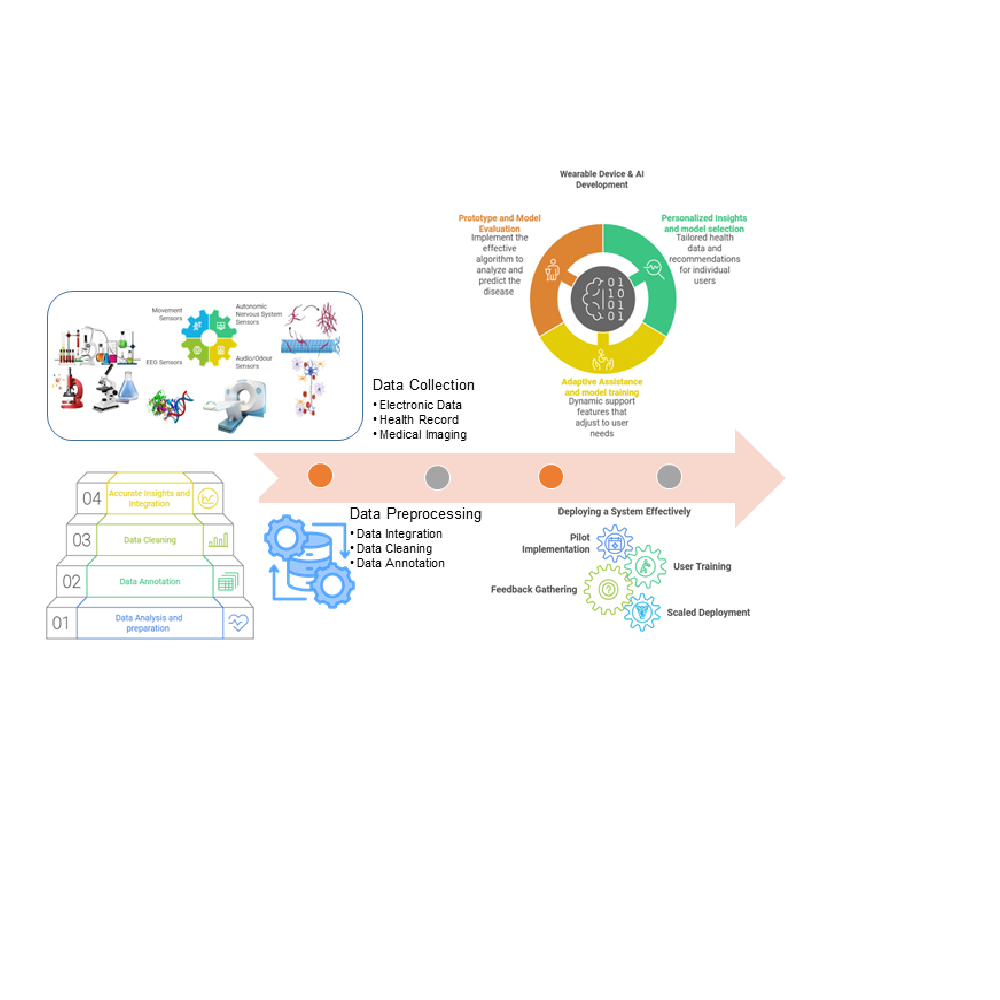
Topic Name:
EPITOME – EPIlepsy and Tumor detection through Optimised Machine learning Engine
Visual Abstract Image

Objectives
Issues Involved
Data Quality and Variability: Limited availability of high-quality and consistent datasets across institutions, affecting tumor classification, seizure detection, and histopathology AI models. Variations in preparation methods, staining, or imaging contribute to inconsistencies.
Model Generalizability: Difficulty in creating AI models that work accurately across diverse patient populations and institutions due to data-shift, inter-observer variability, and individual differences in seizure patterns or tumor presentations.
Clinical Validation and Regulatory Approvals: Lack of robust, long-term clinical validation for AI tools and wearable devices, leading to delays in FDA or similar approvals and limited integration into healthcare workflows.
Real-Time Functionality: AI tools and wearable devices often require substantial processing time and stable internet connectivity, making them challenging to use in scenarios requiring rapid clinical decisions.
Device Usability and Patient Comfort: Wearable devices must be lightweight, comfortable, water-resistant, and equipped with long battery life for continuous monitoring, which poses significant design challenges.
Cost and Accessibility: High costs of AI tools and wearable devices limit accessibility, especially in low- to middle-income regions, underscoring the need for cost-effective solutions.
Rare Condition Detection and Ethical Concerns: AI systems may struggle to identify rare or complex pathologies and must address ethical concerns like false alarms, caregiver response, and misuse of sensitive healthcare data.
Team Lead
Name: Dr. Hima Deepthi Vankayalapati
Email ID: himadeepthi.vankayalapati@nmims.edu
Team Members
Name: Dr. Vaishali Kulkarni
Email ID: Vaishali.Kulkarni@nmims.edu
Name: Dr. Radhika Chapaneri
Email ID: Radhika.Chapaneri@nmims.edu
Name: Dr. Ami Munshi
Email ID: Ami.Munshi@nmims.edu
Name: Dr. Kalyani Barve
Email ID: Kalyani.Barve@nmims.edu
Name: Dr. Ravi Chandrashekhar Reddy
Email ID: ravichandra.danduga@nmims.edu